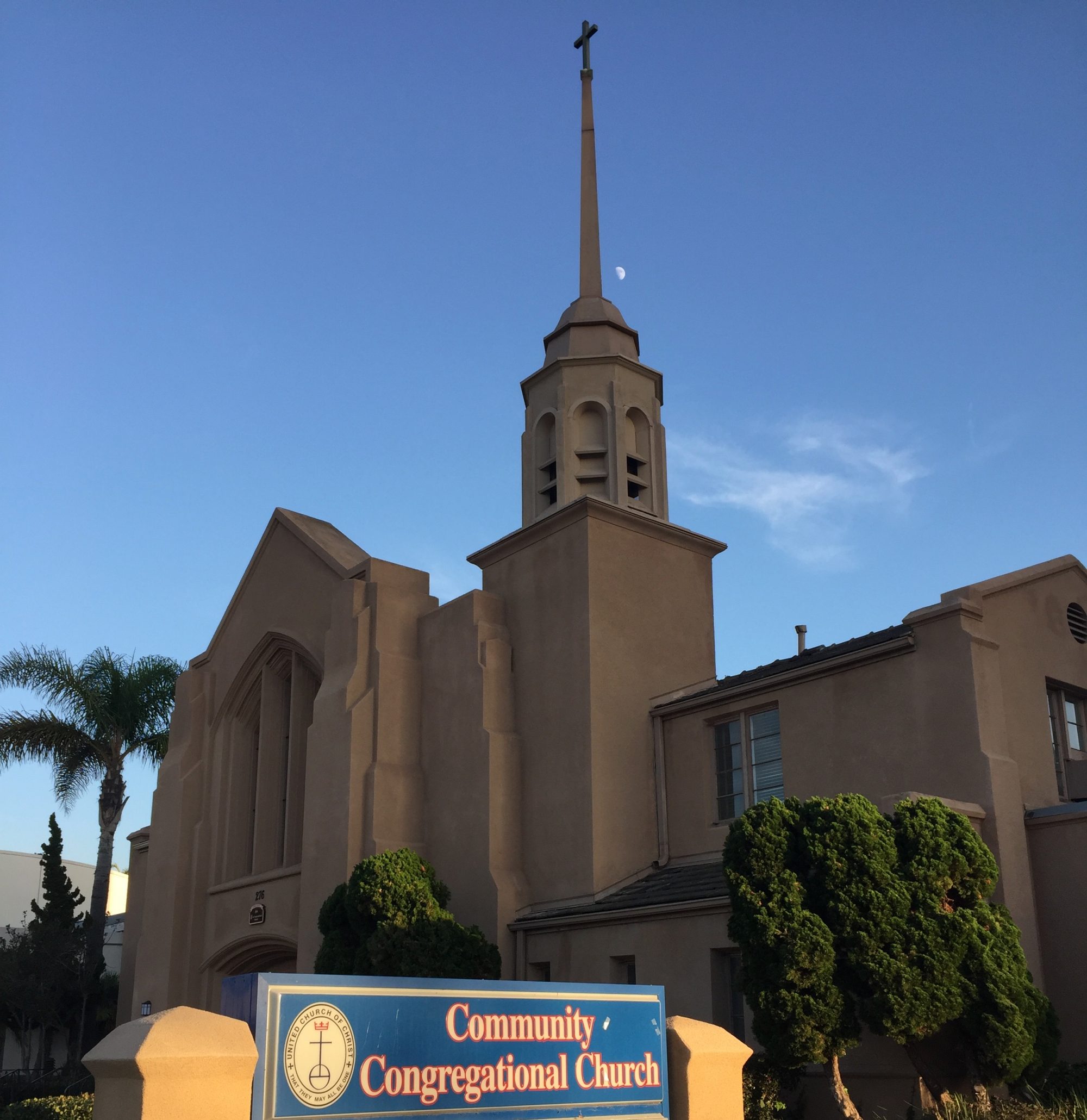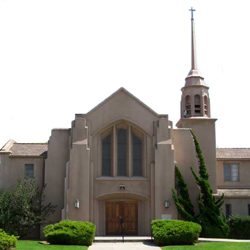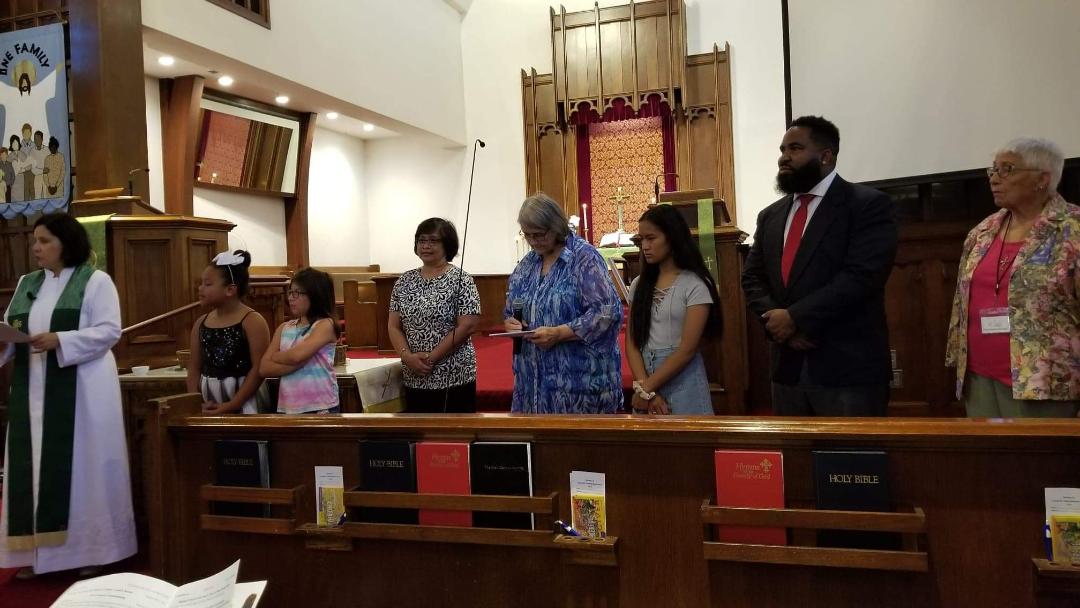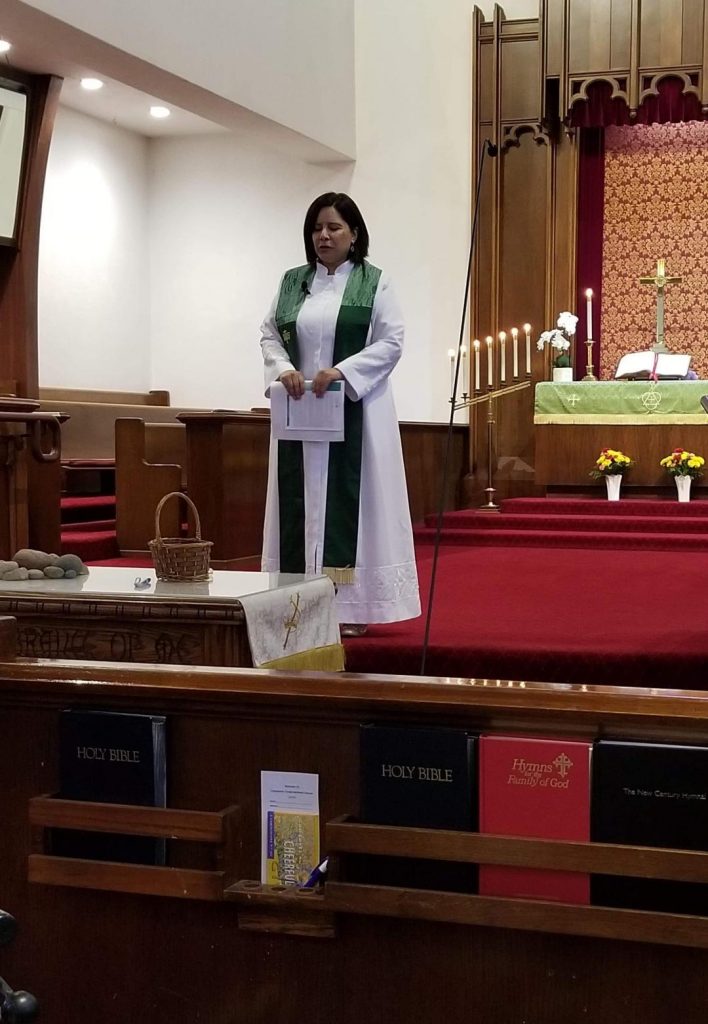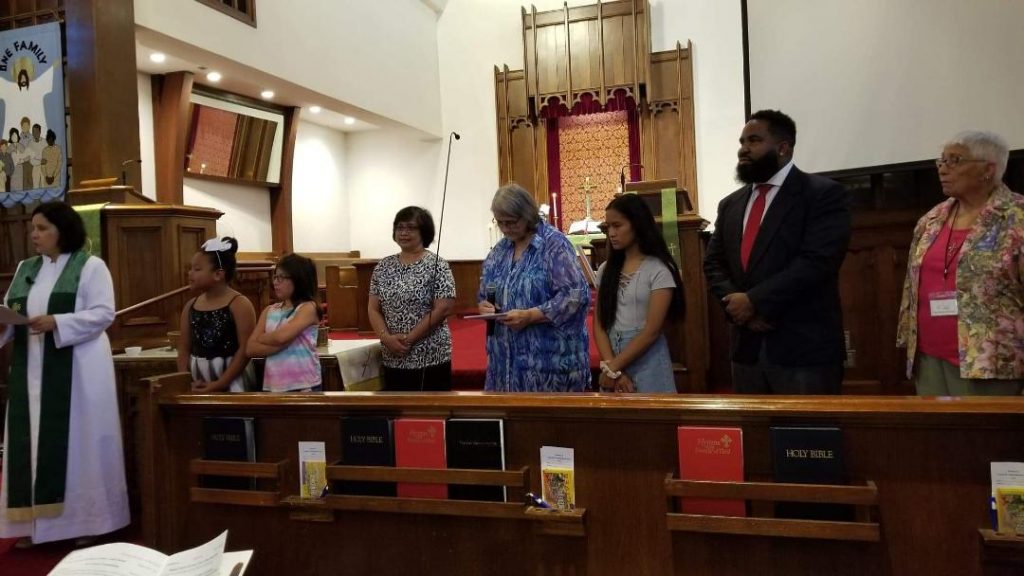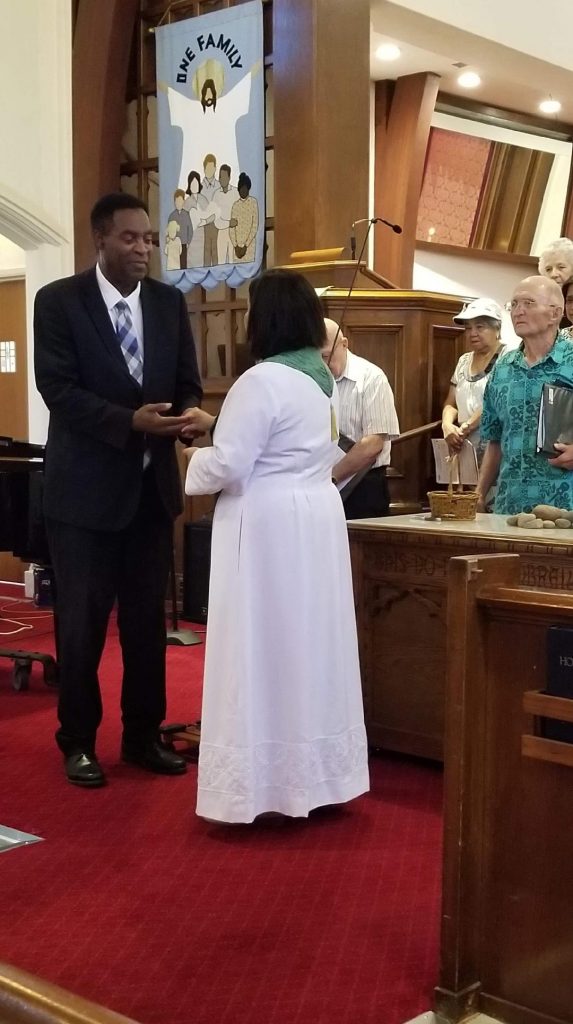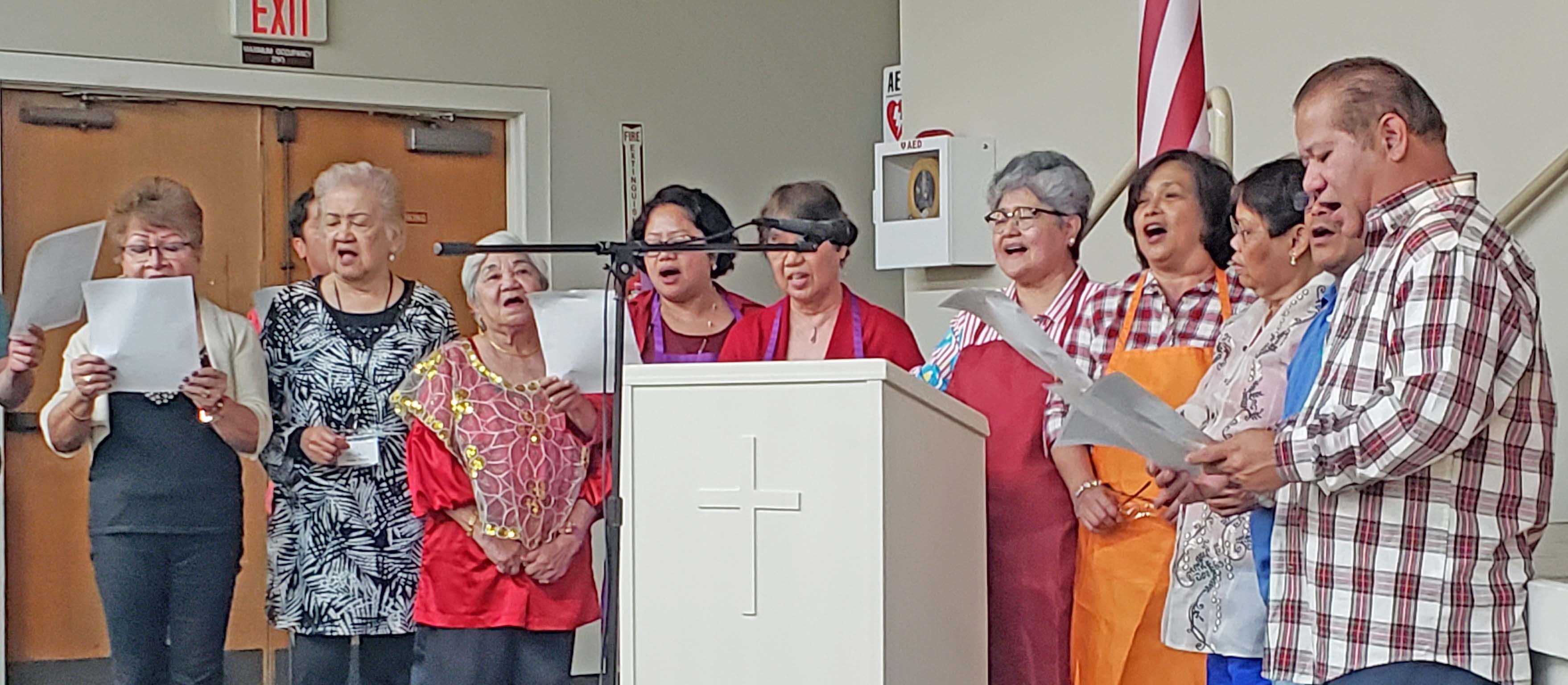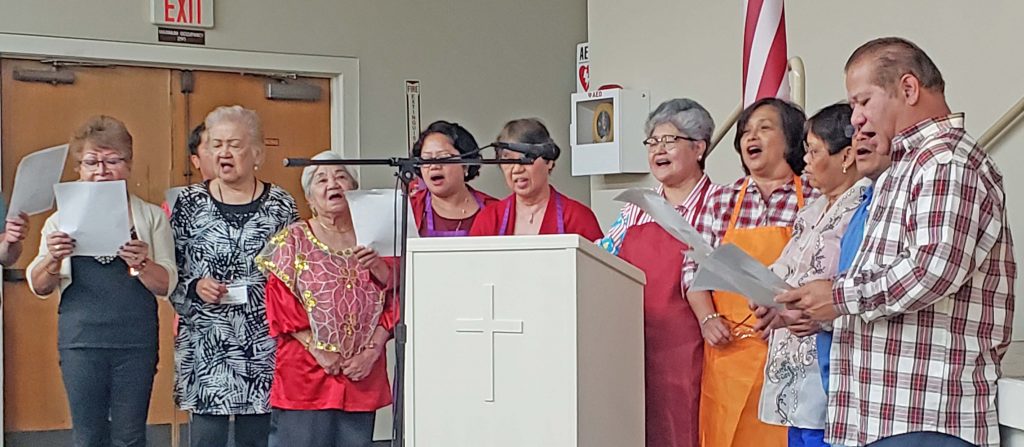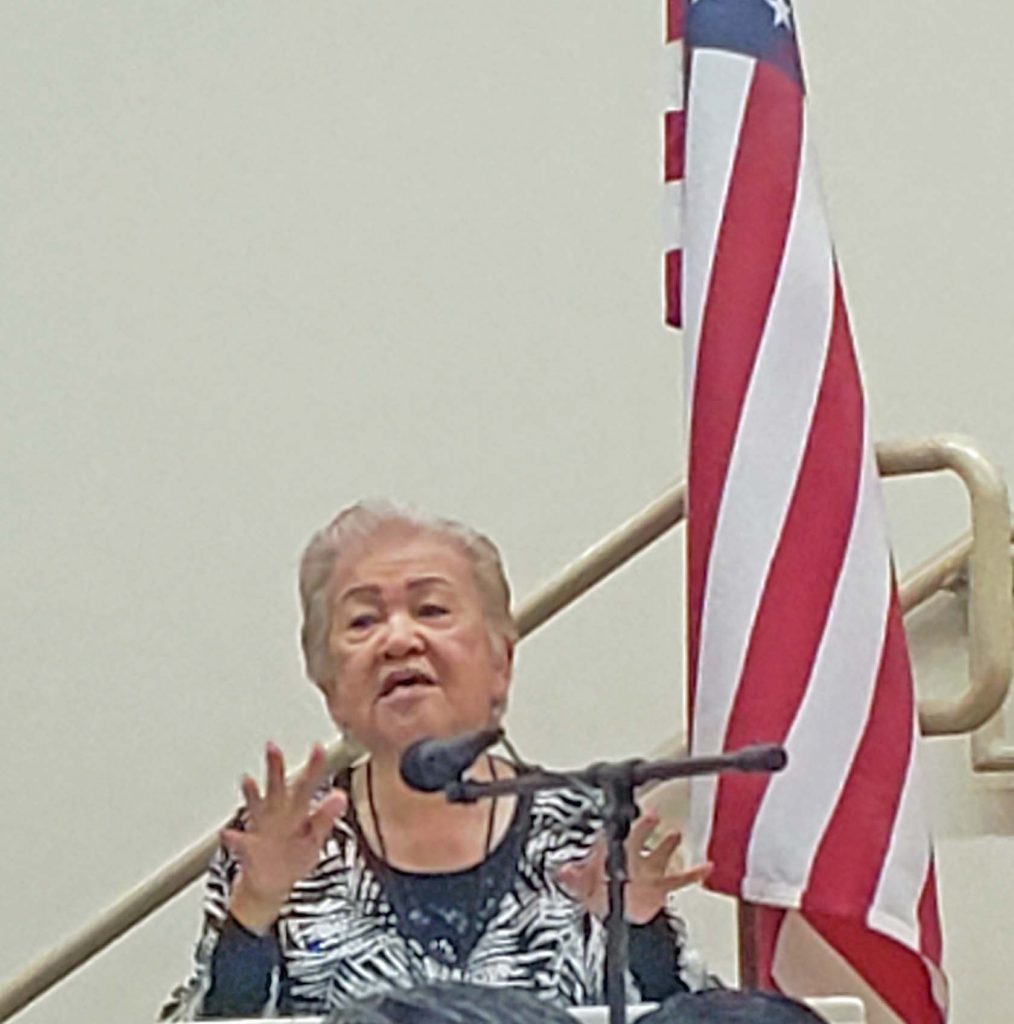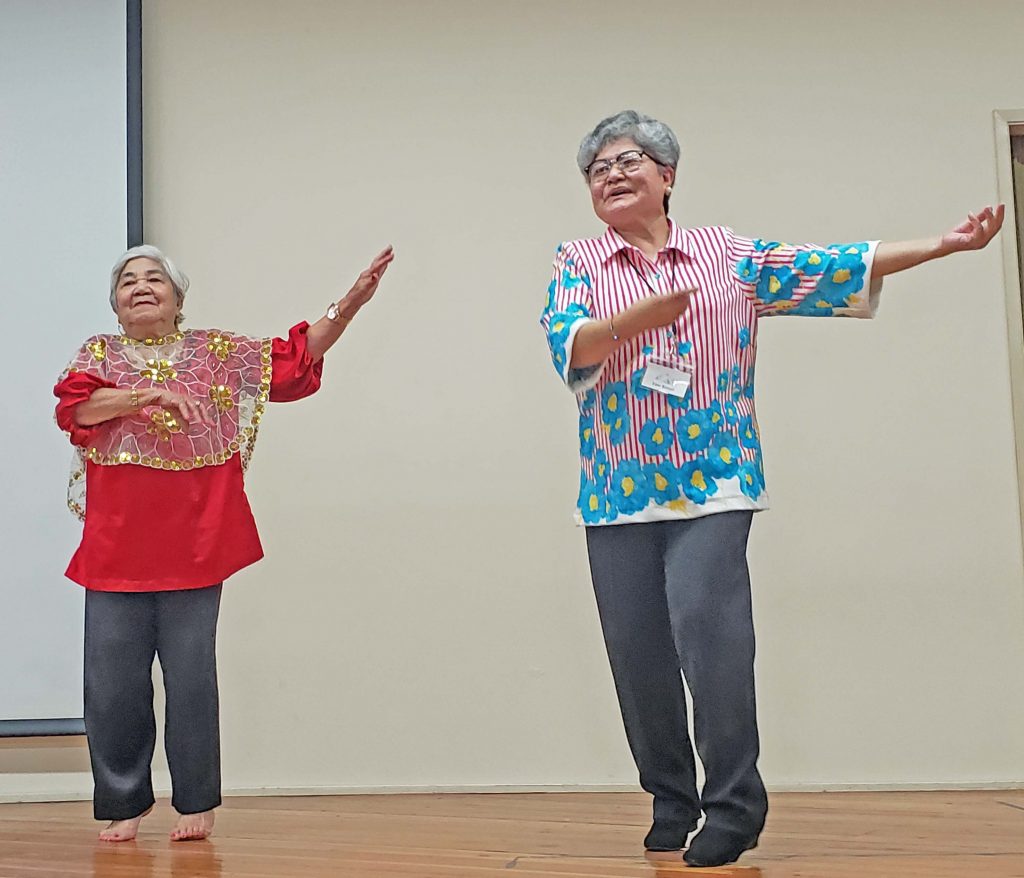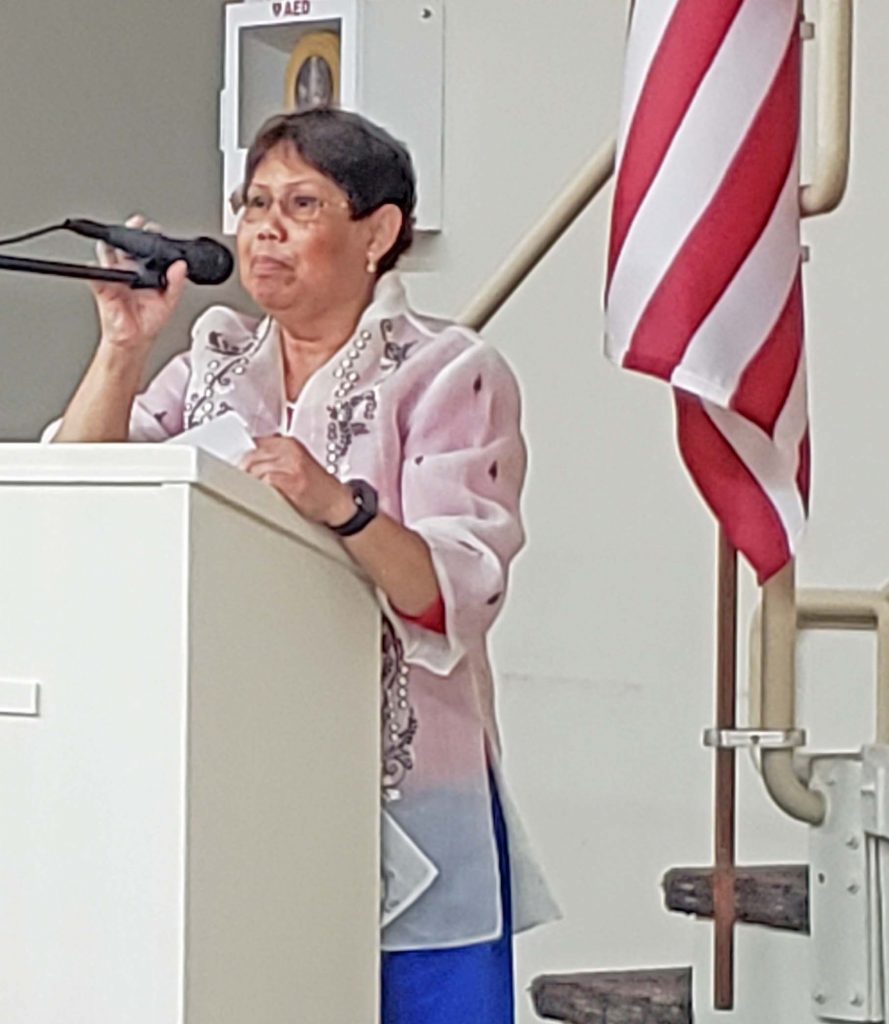Chimes September 2019
2019-7-21 “Getting It Done”
Sermon for July 21, 2019
“Getting It Done”
Acts 6:1-7
Community Congregational Church of Chula Vista, UCC
Rev. Elizabeth Aguilar
Church conflict. It happens; to the best, to the worst, in the smallest and in the largest of congregations. As we continue our sermon series, on the Book of Acts, we realize that the early Church was no exception. On the one hand, the fact that more leaders were needed to carry out the ministry of the church was a good thing. On the other hand, how it came about was not. I believe we can learn from what happened at this time in the life of the early church and how the Apostles handled this conflict.
So what was the issue? The issue was that a certain group of people from within the church believed that their own widows of their same back ground, were being neglected from the ministry of the Apostles. We read that there was “murmuring” (meaning, “complaining.”) You might recall where else this word was used in the Bible, specifically the Hebrew scriptures? Yes, the Israelites when they are wandering in the desert with Moses, with no end in sight… So here we are several centuries later and we have another group, followers of Jesus’s teachings now doing the same thing.
But, unlike the Israelites who dared to murmur after it was their own fault that they were stuck wandering for so long, this group of people (the Hellenists/the Greek speaking Jews who have now returned from having left to other areas of the country) seem to have a legitimate concern. The widows were not being cared for properly.
This would have been important as it was instructed to the Jews way back in the time of Moses, in fact, that caring for the widows, the orphans, was paramount. It was a part of the Jewish law. Therefore, a understood as a mandate by God.
In order to remedy the situation, the Apostles call a meeting together, of all of them, so that they may find a solution. The solution was to add numbers to their group of leaders so that the Apostles can focus on one area of the ministry while the new apostles can focus on the other areas. The “waiting of tables” is not about being waiters. By the way, these tables are about the tables that would have been used for administrative purposes, money chargers and the like.
I like that the Apostles were practical. They saw the problem and they went to find a solution.
They did not however, focus on the misconception that the widows were being discriminated upon because they were of a different background than the Apostles. Instead, they focused on the solution.
Their solution was indeed to find more leaders. And these leaders, you will notice, all had Greek names. Meaning, they were wise to appoint new leaders among those that would have been feeling discriminated against.
The first Apostles must have understood then that it was important that no one felt they were being favored upon or left out in any way. As we all know it is never a good thing when a group of people feel they are being discriminated against or marginalized in any way. Now is it a good thing if a misinterpretation is allowed to grow and fester among a church.
Fortunately, in this case the leaders of this church were able to name the problem, find a solution, act on the solution and were allowed to do all of the above.
I taught confirmation class for about 10 years straight. The students were always a mixture of those who were raised in the church and others who were new to it all. The other teachers and I always tried to show no impartiality amongst them and to allow them to ask any question that they might have. It was an opportunity for them to share their reservations about the Christian faith, about the local church itself, and about the Bible as well. Inevitably, we would receive comments inferring things like “it must have been easier to be a Christian back then” or that to be a Christian meant you “had to be perfect” and not “have any fun.” Later, as time went on and we exposed them to very imperfect people in the Bible, to conflicts within the church or amongst the disciples as well; along with the attempts and actions of the United Church of Christ to make public statements and create ministry focus that showed its commitment toward inclusion of ALL people- all of that helped them to realize that there was a place for them too in the local church and in the Church itself.
But going back to our scripture reading- notice that the Apostles chose new leaders based on certain criteria and laid hands on them. This meant that they wanted to confer the power of the Holy Spirit upon them and allow this act to be a symbol of authority being placed on them as new leaders. It also meant that they weren’t going to chose just anyone. They had to have demonstrated good character and devotion.
Why is this important to note? Because it tells us that the Apostles did not allow this to be a popularity contest. They entrusted the work of the new disciples, to God. They understood that church leadership and church work is holy work.
Some learnings for us modern day disciples/ followers of Christ, members of this church, in this location, and at this time in history is that- we must realize that conflict will occur in the church but we must not shy away from it but find solutions to those conflicts. We must also continue to trust God with the work of our Church- with whom we call to carry out the work of the church, to place it ALL in God’s holy hands. We cannot therefore, treat ministry as we would treat a secular business or social club.
My hope and prayer is that we continue to carry out the work of THIS church as best as we can- by putting ALL of it into God’s hands. By entrusting and praying for our church leaders, by naming the conflict and finding solutions to them. By trusting one another and more importantly, trusting God.
We are living in a time of this country where there are too many examples of poor leadership, of distrust, of division and conflict. As Christians we have an opportunity to model good behavior, cooperation, partnership, trust in leadership, striving to find good solutions. We can do all of this as we continue to trust God in all of the circles we are a part of- here, home, work, etc. We can be agents of God’s peace, therefore by being disciples that chose to follow God by loving one another as best as we can. Amen.
2019-7-14 “Can Anything Stop God’s Plan”
Sermon for July 14, 2019
“Can Anything Stop God’s Plan?”
Acts 5:12-42
Community Congregational Church of Chula Vista, UCC
Rev. Liz Aguilar
This is a long portion of Acts that we will be covering today. It might be the longest portion of scripture I have preached about, ever. But as we continue to study the book of Acts, its important that we keep moving forward and also that we keep the portions of the over-all story together, in sections that make sense to the entire story.
Here we are in the story where we see that the Apostle’s population as leaders and teachers has not waned. In fact, it has increased. They are healing more people and so more people are beginning to follow them. Not only that, they have continued to defy the religious authorities but they have not ceased to proclaim Jesus as the Savior but have increased their message.
We heard that the result of their increase in ministry is that they are arrested, yet, again. However, once again, God intervenes and miraculously through an angel they are released from prison.
Of course, the authorities don’t give up, however and so after they notice that the apostles are gone. They have them re-arrested for questioning, (but without violence), for fear of a revolt by the people… They want to question the apostles and probably want to intimidate them.
However, their questioning only serves to make Peter speak up again about the person of work of Jesus Christ. He basically sys that because they were witnesses of His ministry they can not keep silent.
The courage of the Apostles only serves to anger the Sadducees even further and they are about to be thrown in jail again, when a certain religious leader advises them to leave the Apostles alone and instead wait it out. His council is that if the apostle’s teaching is the real thing, they will succeed. If not, they will fail.
The Apostles’ aren’t kept in prison this time but instead they are beaten up. The response of the Apostles is to praise God and “rejoice” that they were “considered worthy to suffer dishonor for the sake of the name (of Jesus).” Their numbers continued to increase and they continue to teach.
That is basically the re-cap of today’s scripture. What are we to make of it? How are we to understand what was happening then and what God might be inviting us to take away from this story? Three things come to mind:
- It certainly shows us that the Apostles were determined, despite continued persecution, to spread the message of Jesus to others and to continue carrying out their ministry of healing and teaching.
- It showed us that the religious authorities were indeed threatened and were going to try their best to put the apostles in their place and further intimidate and punish them.
- It showed us that God, however, had other plans. An Angel releases them and later someone that the authorities respect advises them to leave the Apostles alone as a test of their worth.
My over-all take away about this portion of this scripture are two-fold. Firstly, that nothing was going to stop the Apostles from doing what they needed to do. They had a mission and they stuck to it. I admire their perseverance and their total focus on their mission. They do not let any opposition, threat, danger or even physical harm stop them. I am not I can be that brave but I certainly admire their work and their reaction to the opposition they encountered.
At the same time, it is also clear to me that the reason they were able to keep on course was because of three things.
-They new who and what they were about
-They relied on the power and presence of God in their midst
-They relied on one another
This story also encourages me to hold fast to my own mission no matter what ever opposition I may encounter along the way. One recent commentator I read stated that if there was a central message to the Book of Acts it is that “God’s plan is unstoppable.”
Think about it- nothing and no one can stop us from doing what God wants us to do. There is nothing human that can stop us. Do you believe that? Do you believe that on a micro and a macro level? Do you believe, for example that the mission you have as an individual or for your family is a) the right one; b) the one God wants for you and c) will come to fruition?
I see today’s story as a reminder that indeed we must stick to whatever mission God has placed on our lives. Be it as individuals, as families or as a church.
But back to their success- The second take away is that they relied on God and each other. To this point, I have a question for us to consider:
My question is this: do you rely on God? Do your really believe that God will provide for your needs, protect you when needed and therefore, show you the way out of no way?
What is your mission? Do you have one? Have you asked God if that is the mission God has for you?
What is our mission as a church? Is it to just worship God on Sundays? To feed the poor and the homeless? To feed those who are spiritually hungry? To be a center of transformation and change? To be a beacon of hope in a dark world? To be a place where people feel safe – safe enough to agree to disagree, safe enough to be respected and treated kindly, safe enough to know that here people demonstrate the love of God with one another and with strangers? To be a place where we not only respect each other’s differences but also embrace the, celebrate them, and therefore continue to welcome others? What is our mission?
What about their reliance on one another? We get the sense that they didn’t carry out this ministry on their own, did they? They relied on one another. They were never alone in their work or witness to God’s purpose.
One of the hardest things I have encountered at every place of ministry and new place I have lived is to find my network of people whom I will journey and work along side with. I have had to re-build that team over and over and yet one thing has remained constant- God always provided.
Therefore, just as they relied on each other they mostly relied on God’s provision. They never lost sight of their faith in God not because they were necessarily holy but because they knew God would not fail them. Do you know that? Do you believe that?
Yesterday my niece and I were speaking about the ways God has shown God’s love and provision in our lives. It was exciting and even encouraging to hear how God has shown God’s mercy and plan for my niece throughout her three years away at college. We shared our stories freely and I would dare say that it helped us both as we continue to move forward.
My prayer is that we can continue to trust God as we begin to define our mission as individuals, as families, and as a church. Let us do so, expectantly and joyfully!
